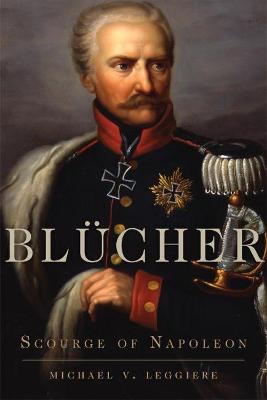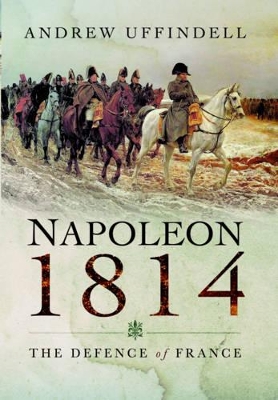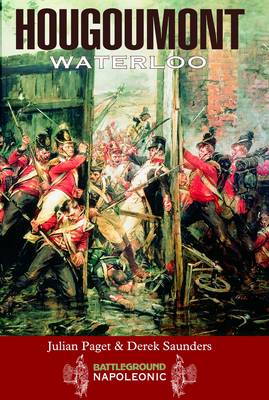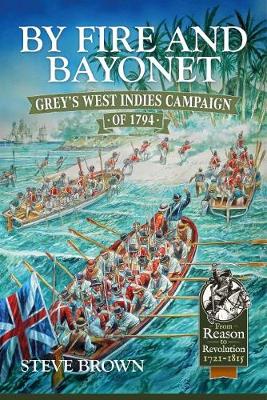When Napoleon eventually died in exile, the Lords of the Admiralty ordered that the original dispatches from seven major fleet battles-The Glorious First of June (1794), St Vincent (1797), Camperdown (1797), The Nile (1798), Copenhagen (1801), Trafalgar (1805), and San Domingo (1806)-should be gathered together and presented to the nation. These letters, written by Britain's admirals, captains, surgeons, and boatswains and sent back home in the midst of conflict, were bound in an immense volume,...
""Napoleon Bonaparte was a man on borrowed time. Every task and duty was expedited with military precision – and timing. He famously gobbled up his déjeuner in a cramp-inducing 10 minutes, dispatched a Spartan supper in 20 or less, and only indulged in four hours of nightly shut-eye. So it’s only fitting for a history book to boil down the colossus’s tumultuous rise and fall from grace to quick-fire in 30-second chapters (and counting)." - France Today Almost two centuries since his death, Napo...
The Peninsular War (1807-1814) was a military conflict for control of the Iberian Peninsula during the Napoleonic War, where the French were opposed by British, Spanish, and Portuguese forces. The war began when the French and Spanish armies invaded and occupied Portugal in 1807 and lasted until the Napoleon's defeat in 1814.
The War in the Peninsula and Recollections of the Storming of the Castle of Badajos
by Robert Knowles and Captain James MacCarthy
Lieutenant Knowles served in the 7th (Royal) Fusiliers 1811-1813, seeing action in several battles, being wounded at the storming of Badajoz and at the battle of Salamanca. He was killed at Roncesvalles on 25 July 1813 during the Battle of the Pyrenees. By combining the overall picture as painted by Lt Knowles with the specific, bloody narrative of the storming of the Castle by Captain MacCarthy in one volume, this work is not only fantastic value for money but also offers the discerning reader...
On the Road with Wellington (Napoleonic Library)
by August Ludolf Friedrich Schaumann
One of the most colorful characters in the Napoleonic pantheon, Gebhard Leberecht von Blucher (1742-1819) is best known as the Prussian general who, along with the Duke of Wellington, defeated Napoleon at the Battle of Waterloo. Throughout his long career, Blucher distinguished himself as a bold commander, but his actions at times appeared erratic and reckless. This magnificent biography by Michael V. Leggiere, an award-winning historian of the Napoleonic Wars, is the first scholarly book in Eng...
In 1814, after two successive years of defeat in Russia and central Europe, Napoleon was faced with the ultimate disaster - an Allied invasion of France itself. The conduct of the intense, fast-moving campaign that followed has been widely hailed as one of his greatest feats as a commander, yet it has rarely been described fully and objectively. Andrew Uffindell, in this gripping and original study, reconstructs the campaign, reassesses Napoleon's military leadership and provides a masterly acco...
Nelson's History of the War - Volume XVII - From the Opening of the Rumanian Campaign to the Change of Government in Britain
by John Buchan
In 1798, the Irish rose up against the corrupt English government run out of Dublin. Joined by both Protestants and Catholics, the rebellion quickly spread across the country. Although the Irish peasantry were armed mostly with pikes, they were able to overwhelm a number of small, isolated British outposts. However, even with the half-hearted assistance of the French, the Irish could not compete with the organized ranks of the British Army when under competent leadership. In a brutal turning of...
The authoritative edition of Franklin's autobiography, now with a new introduction by eminent Franklin scholar Edmund S. Morgan Translated into a dozen languages, printed in hundreds of editions, and read by millions of people, Franklin's autobiography has had an influence perhaps unequaled by any other book by an American writer. Written ostensibly as a letter to his son William, the autobiography offers Franklin's reflections on philosophy and religion, politics, war, education, material succe...
Uniforms of Russian army during the Napoleonic war vol.21 (Soldiers, Weapons & Uniforms Nap, #26)
by Vasilevich Viskovatov Viskovatov and Luca Stefano Cristini
The desperate defence of the hamlet of Hougoumont by the Guards was the key to Wellington's victory over Napoleon at Waterloo. It was 'a battle within a battle' and Wellington himself later declared that the outcome 'rested upon the closing of the gates at Hougoumont'. To call this a close run affair was indeed something of an understatement. This book bring to life the events of 18th June 1815 to both the visitor and reader at home.
Science, Utility and British Naval Technology, 1793–1815 (Routledge Studies in Modern British History)
by Roger Morriss
During the French Revolutionary and Napoleonic Wars, the technology employed by the British navy changed not just the material resources of the British navy but the culture and performance of the royal dockyards. This book examines the role of the Inspector General of Naval Works, an Admiralty office occupied by Samuel Bentham between 1796 and 1807, which initiated a range of changes in dockyard technology by the construction of experimental vessels, the introduction of non-recoil armament, the...
There have been few books about Grey's glorious (but ultimately ill-fated) West Indies campaign in the early years of the long and terrible wars of 1793-1815, yet five of the subalterns in Grey's expeditionary force went on to command divisions in Wellington's Peninsula army; another two commanded the Iron Duke's Royal Artillery; and one (Richard Fletcher) - famously - the Royal Engineers. The tactics used by Sir Charles Grey were as far removed as can be imagined from the traditional image of...
Uniforms of Russian army during the Napoleonic war vol.22 (Soldiers, Weapons & Uniforms Nap, #27)
by Aleksandr Vasilevich Viskovatov, Luca Stefano Cristini, and Mark Conrad
The first comprehensive history of the decisive Fall Campaign of 1813, which determined control of Central Europe following Napoleon's catastrophic defeat in Russia the previous year. Using German, French, British, Russian, Austrian and Swedish sources, Michael V. Leggiere provides a panoramic history which covers the full sweep of the struggle in Germany. He shows how Prussia, the weakest of the Great Powers, led the struggle against Napoleon and his empire. By reconstructing the principal camp...























